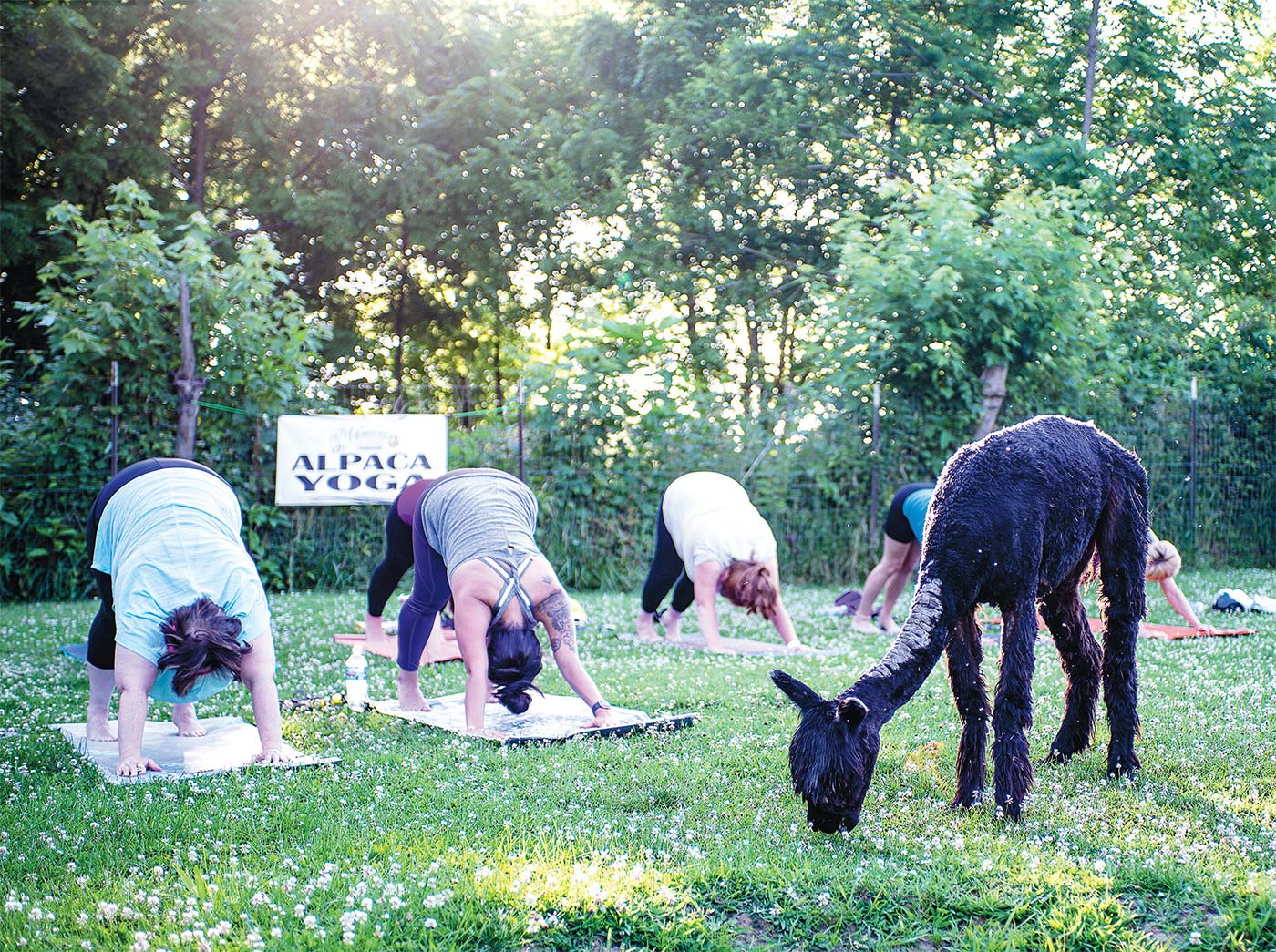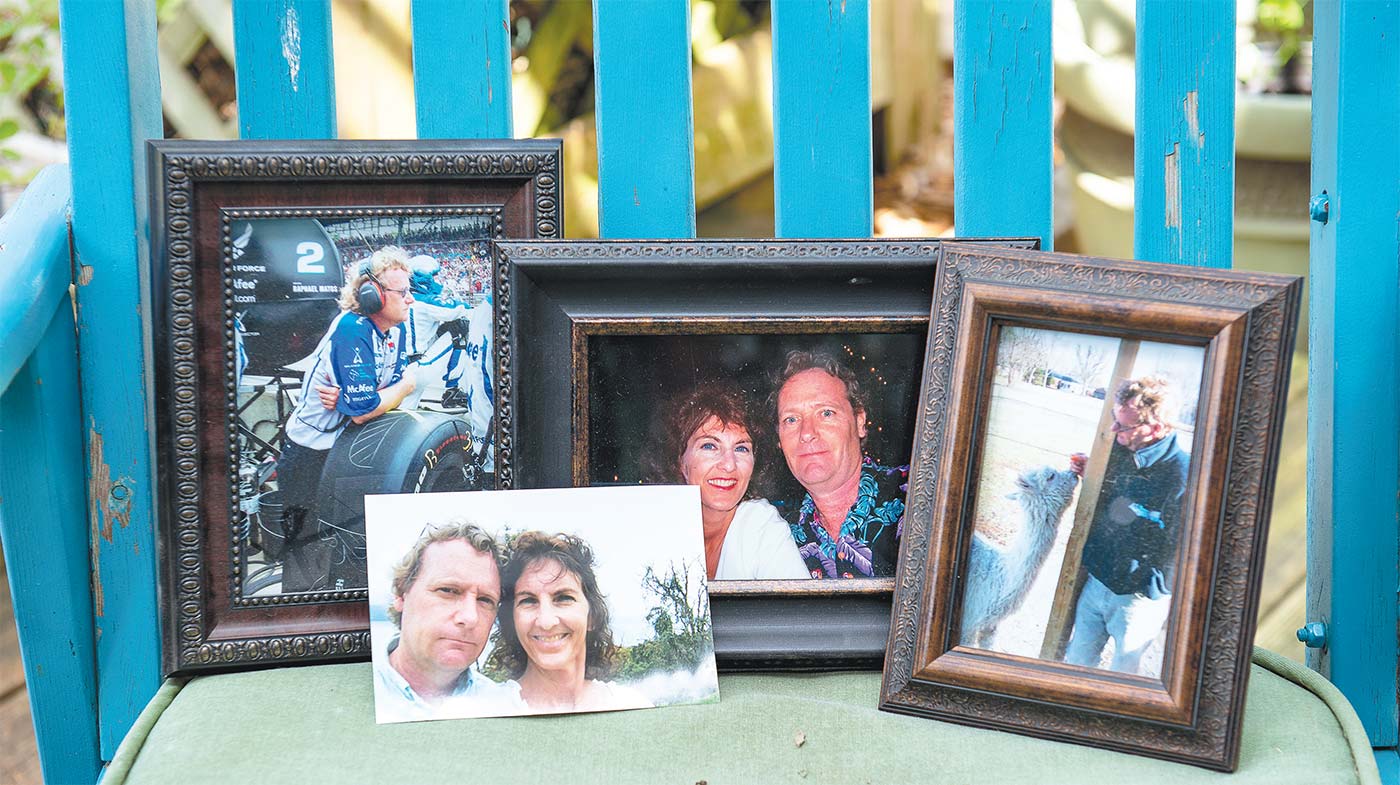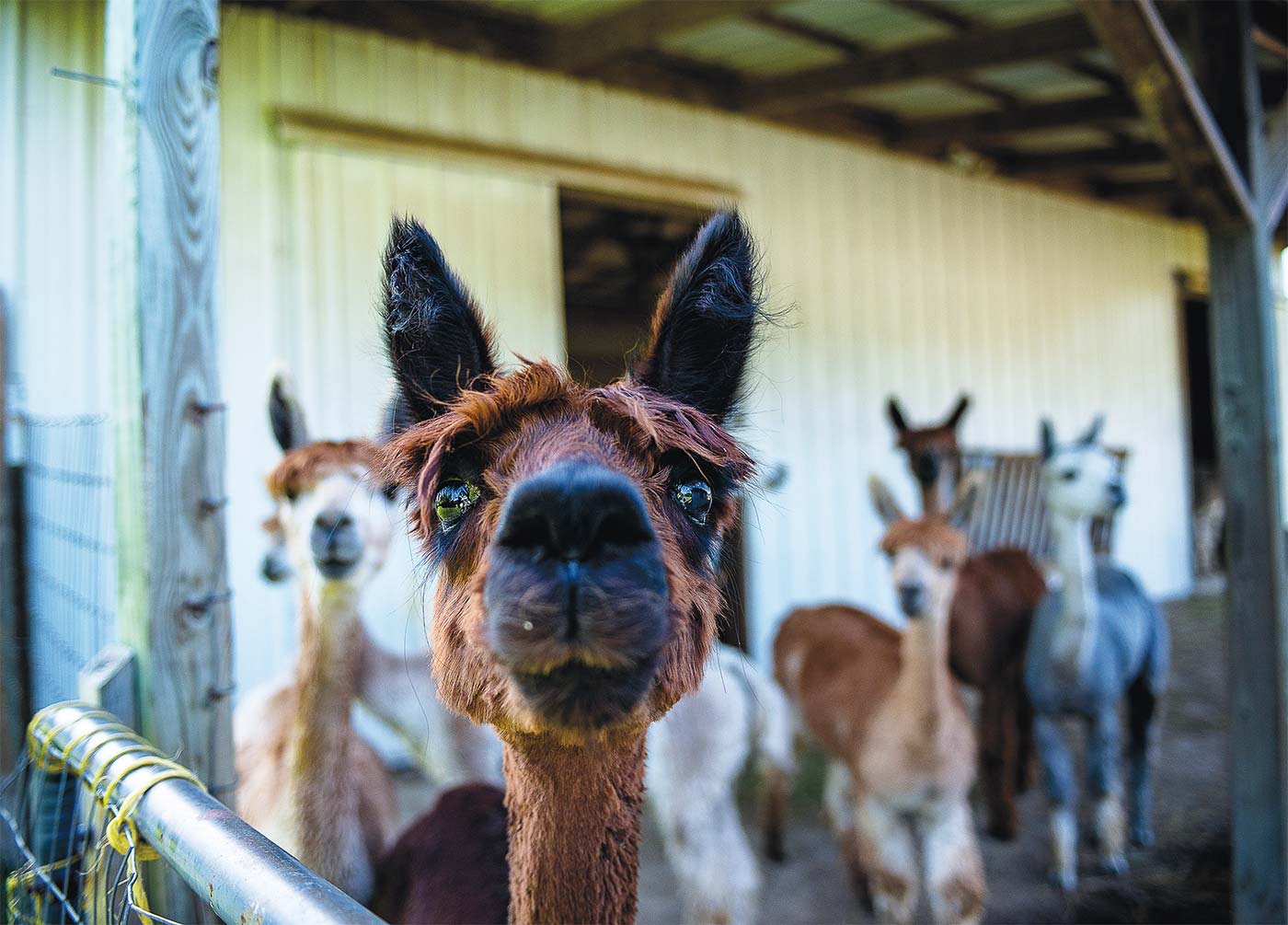Montrose Farms
When Lori Lovely and her husband, Chris, bought and renovated what is now Montrose Farms in Brownsburg, Indiana, in 2007, they decided they should farm something. It was a big leap from their shared history in racing and world travel, but it was exactly where they wanted to be.
“I don’t remember how we heard about alpacas, but we fell in love with them on our first visit,” Lori recalls. Her grandparents had been farmers, and she had lived on a small farm for a while. She had a different endgame in mind, however, for her farm.
“I went vegetarian nearly 40 years ago, right after having a baby. Personally, I do not believe in killing and eating animals. I was delighted to find a way to farm responsibly and lovingly, with an end product that does not require [harm to animals].”
BUILDING THE DREAM TOGETHER
Lori and Chris might have been described as the perfect couple from the moment they met in the ʼ80s. “We’re project people,” said Lori. Farming proved the perfect project for them. Montrose Farms was a haven, and completely different from racing. They stayed active in both. In fact, Lori’s love of racing lives on in many an alpaca’s name: Jules Bianchi, Barbarella and Carlos Pace, to name a few.
A few select alpacas are named after another very special man in Lori’s life—one who’s been an influence even longer than her husband. Though Lori can’t quite explain her lifelong adoration and devotion to to Freddie Mercury, lead singer of the band Queen, she credits him for helping her become a better person. He inspired the self-described “… little Midwestern white girl from a very strict family” to work in the gay community and volunteer at AIDS foundations. “Freddie was an awakening for me. He changed my life.”
And, much like Freddie himself, her life has been anything but traditional. After earning a degree in history, Lori worked as a journalist for publications such as On Track, Racer and the Indianapolis Star. She started doing timing and scoring for Sports Car Club of America, then bought a Formula Super Vee and ran her own team. She met Chris, who worked as a mechanic, crew chief and eventually as a “gearbox guy,” through a mutual friend. It was love at first sight.
For many years, “We ate, breathed and slept racing. We loved it so. But we also loved animals and wanted a retreat, so we bought this farm and began fixing it up.” Not ones to merely dabble, Lori and Chris learned everything there was to know about alpacas, of which there are two varieties: Huacayas and Suris, the latter of which Montrose Farms raises. Only one in 10 alpacas is a Suri. Suri alpaca fiber is luxuriously soft. It’s also hypoallergenic and warmer yet lighter weight than sheep’s wool.
 Montrose Farms hosts alpaca yoga throughout the year. Visit their website for the schedule of activities.
Montrose Farms hosts alpaca yoga throughout the year. Visit their website for the schedule of activities.
FLYING SOLO
Lori and Chris spent years renovating Montrose Farms and building their alpaca ranch. Finally, just when they were settling into their newfound dream life, the unthinkable happened: Chris was diagnosed with a terminal illness.
Lori’s good friend Ingrid Newkirk, co-founder and president of PETA, sent vegan books and food and encouraged Chris to make the change to a 100% vegan diet. He did, overnight, and Lori joined him.
“My only regret is that we did not do it sooner,” says Lori.
After losing Chris, Lori’s dream life turned into an unimaginable abyss she had to navigate without her steadfast partner. Though many of her friends assumed she would sell the alpacas and the farm, Lori had no intention of doing so. She credits her beloved animals with getting her through that tough time.
“The animals were the only reason I got out of bed.”
With such a tender heart, it’s no surprise that Lori would never allow harm to come to any of her animals. When she sells one of her alpacas, she vets the buyers thoroughly and is careful with the contract language to ensure the animals remain protected.
Fortunately, alpacas in the United States are raised primarily for their fiber (for which they’ve been bred for thousands of years). A healthy alpaca’s lifespan is around 25 years, and it will produce good fiber for the majority of those years. Because alpacas are domesticated, they must be sheared every year. If they are not, their fleece will continue to grow, mat and cause health problems.
“We take a lot of care during this [shearing] process,” Lori says.
Lori and her team harvest the fleece themselves and sell many products at the farm, from fiber for spinning to socks, dryer balls, Teddy bears, stuffed alpacas and more.
 Pictured are some of Lori’s favorite photos of her husband and herself.
Pictured are some of Lori’s favorite photos of her husband and herself.
HANG OUT WITH ALPACAS
The great news is, it’s easy to book a Montrose Farms tour and see (and feel!) for yourself. You can attend one of the many events at the farm, from Alpaca Yoga to wine tasting, and even book a bed & breakfast stay through Expedia or Airbnb. Visitors with young ones will be happy to discover Lori extended her love for alpacas by writing a children’s book based on a true story of a blind baby alpaca on the farm. Available at the farm and Amazon.com, Isadora’s Dance illustrates the journey of overcoming fear and learning to trust and discovering joy in a life where differences don’t matter. Agritourists may be interested to discover that alpacas are a “green” animal. Their manure doesn’t burn, so it can be used immediately. They have no hooves, so they don’t tear up pastures. Lori has established a lovely pastoral retreat. There’s truly something for everyone. On your visit, expect to see pristine landscaping and a variety of both farmed and domestic animals.
“There’s always something going on, and we are open to hosting a variety of events in the future.” Lori, a self-described ethical vegan, says, “Animals are my purpose in life. They ARE my life. There is so much life on the farm, and so much love.”
There is no doubt that Lori Lovely lives up to her name.
- For events, information and more details on how you can enjoy the farm, visit MontroseFarms.com.





